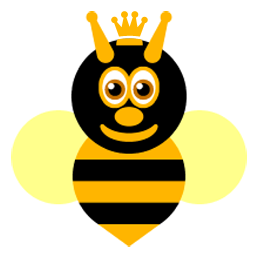2010/02/25
GARDENING GIVES OLDER ADULTS BENEFITS
Do you like this story?
In the Merry, Merry Month of May
by yours truly
As a member of the fastest growing population in America ( those 65 and older ) I was appalled to read that my generation suffers the greatest ratio of chronic disease and disability , beginning in some as early as 50. Even more astounding to me is that 70 % of Americans age 45 and up don't get any kind of physical exercise, despite the fact that it has a positive affect on mental health as well.
The exercise that gardening provides can be enough to meet the guidelines of the Center for Disease Control and Prevention . I am living proof as a lifelong gardener and physical exercise enthusiast . I still work 8 to 10 hours installing landscapes ( yes, the dirty part-digging, hoeing, raking, weeding and planting ) .
When I go for my annual checkup the doctor's assistant always says be sure to bring your meds with you. She's amazed when I tell her that I take nothing but vitamins. The only maladies I suffer from are an occupational one : Plantar Faciitis , an overuse of the feet , and the epatoozies caused by the inability to garden during the long, cold Chicago winters. You won't find epatoozie in the dictionary or google. It's a unique Southern expression for an ailment you can't name.
Read about the benefits of gardening in this interesting Science Daily article below :
Gardening Gives Older Adults Benefits Like Hand Strength And Self Esteem
ScienceDaily (Feb. 17, 2009) — Researchers at Kansas State University already have shown that gardening can offer enough moderate physical activity to keep older adults in shape.
In research to be published in February in the journal HortScience, the researchers discovered that among the other health benefits of gardening is keeping older hands strong and nimble.
"One of the things we found is that older adults who are gardeners have better hand strength and pinch force, which is a big concern as you age," said Candice Shoemaker, K-State professor of horticulture.
Shoemaker is part of a small team of K-State researchers studying the ways in which gardening affects the health of older adults. She works with Mark Haub, associate professor of human nutrition, and Sin-Ae Park, a research associate in horticulture who earned her doctorate in horticulture from K-State in December 2007.
The research appearing in HortScience in February comes from a study that assessed 15 areas of health in older adults, from both those who garden and those who don't. The researchers looked at measurements like bone mineral density, sleep quality, physical fitness, hand strength and psychological well-being.
"We found that with gardening tasks older adults can, among other things, improve their hand strength and self-esteem at the same time," Park said.
Although Shoemaker said that differences between gardeners and non-gardeners showed up in a few health assessments like hand strength, overall physical health and self esteem, results from some of the other areas were more ambiguous.
"If we had a larger sample I think we would see more health differences between those who garden and those who don't, including in areas like sleep quality and life satisfaction," she said.
The results about the positive impact of gardening on hand strength prompted Park and the researchers to explore this area further. They are now analyzing data from an eight-week horticulture therapy program that targeted hand strength in stroke patients.
"They did tasks like mixing soil and filling pots," Park said. "They had to use their hands all of the time, so that was good exercise -- and they really enjoyed it."
Park, Shoemaker and Haub recently garnered national news coverage for a study published in the journal HortTechnology. The study probed the physical impact of gardeners working in their own gardens. The researchers showed that older adults can use gardening to achieve a moderate activity level and meet the Centers for Disease Control and Prevention's exercise recommendations.
The trio of researchers also published a study in the journal Perceptual and Motor Skills of the physical impact of individual gardening tasks. They found that a task like raking, which uses the whole body, had the most exercise benefit, whereas activities like mixing soil or transplanting seedlings give the most benefit to the upper body.
Shoemaker, who also researches gardening as a prevention strategy to childhood obesity, said that studying the physical benefits of gardening is important for older adults because gardening is a physically active hobby that provides an alternative to sports or other exercise.
"There's a lot of natural motivation in gardening," Shoemaker said. "For one thing, you know there's a plant you've got to go out and water and weed to keep alive. If we get the message out there that older adults can get health benefits from gardening, they'll realize that they don't have to walk around the mall to get exercise."

This post was written by: beemagnet77
BeeMagnet is a professional graphic designer, web designer and business man with really strong passion that specializes in marketing strategy. Usually hangs out in Twitter has recently launched a blog dedicated to home design inspiration for designers, bride, photographers and artists called HomeBase







0 Responses to “GARDENING GIVES OLDER ADULTS BENEFITS”
Post a Comment